Are you considering taking the plunge into an international volunteer exchange? It's an incredible opportunity to not only travel but to immerse yourself in a new culture while making a meaningful impact. Whether you're curious about community development, environmental conservation, or education, there's a world of possibilities waiting for you. Read on to discover tips, inspiring stories, and everything you need to embark on this exciting journey!
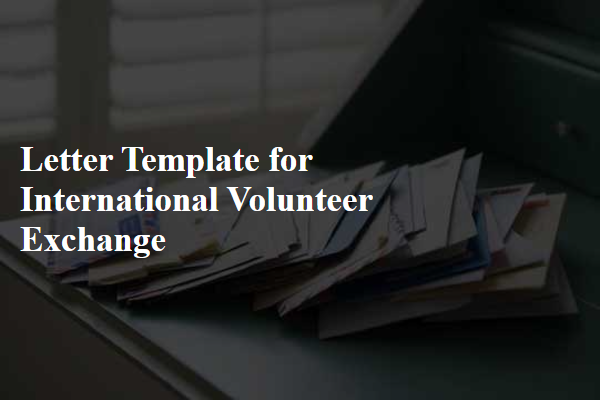
Purpose and Objectives
International volunteer exchange programs foster cultural understanding and collaboration between diverse communities. These initiatives aim to cultivate global citizenship among participants, enhancing their skills through immersive experiences in various fields such as education, environmental conservation, and humanitarian aid. Volunteers contribute to meaningful projects while gaining insights into local customs and practices, promoting mutual respect and tolerance. Objectives include empowering local communities through skill transfer, addressing specific local needs, and promoting sustainable development through grassroots initiatives. Additionally, these exchanges create long-lasting relationships among volunteers and host communities, fostering a sense of global solidarity.
Program Details and Duration
International volunteer exchange programs offer immersive experiences for participants seeking personal growth and cultural understanding while contributing to community development. These programs typically last between 1 to 12 months, with popular destinations including rural villages in Southeast Asia, humanitarian projects in East Africa, and environmental conservation in South America. Volunteers engage in a variety of activities, such as teaching English in local schools, assisting in healthcare clinics, or helping with sustainable agriculture initiatives. Crucial details often include accommodation arrangements, which may vary from homestays to shared housing, cultural orientation sessions, and support networks provided by established organizations. Participation fees can range widely, covering expenses like food, training, and local transportation, aiming to foster meaningful engagement and mutual respect between volunteers and host communities.
Cultural Exchange Benefits
Cultural exchange programs offer profound benefits for international volunteers and host communities. Participants gain firsthand experience of diverse customs and practices, enhancing their global awareness. For instance, a volunteer in Thailand might engage in traditional festivals such as Songkran, which occurs annually in April and celebrates the Thai New Year by splashing water, symbolizing purification. This interaction fosters mutual respect and understanding among different cultures. Additionally, host communities can benefit from the skill sets brought by international volunteers, such as language instruction or environmental conservation techniques. In places like rural India, volunteers may implement sustainable farming practices, improving local agricultural yields. Ultimately, cultural exchange cultivates lifelong friendships and networks, significantly enriching personal growth and social development for all involved.
Eligibility Criteria
The eligibility criteria for an international volunteer exchange program typically include age restrictions, often requiring participants to be between 18 and 35 years old, ensuring a youthful, energetic demographic. Participants must possess relevant skills or experience in areas such as education, environmental conservation, or community development. Proficiency in English, the primary language of communication in many programs, is generally mandatory, while additional language skills can be beneficial. A valid passport, with a minimum six-month validity beyond the program's end date, is essential for international travel. Health insurance covering international medical emergencies and vaccinations (such as Hepatitis A, Typhoid, and Tetanus) may also be required to safeguard volunteers during their stay. Finally, a passion for cultural exchange and a commitment to community service are often emphasized as vital personal qualities for all participants.
Application Process and Deadline
International volunteer exchange programs require a thorough application process, often including several steps to ensure both host and volunteer compatibility. Typically, applicants must submit a completed application form along with a personal statement detailing motivation for participating in the program, and a resume highlighting relevant skills and experiences. Additionally, organizations may request letters of recommendation from previous volunteer coordinators or professionals in relevant fields. Deadlines for applications vary by program, with many requiring submissions several months in advance, often by April for summer programs. Some organizations may also conduct interviews to assess candidates before final selections are made, ensuring a proper fit for the community-focused projects, often located in areas with pressing social needs such as rural development in Southeast Asia or environmental conservation work in South America.
Letter Template For International Volunteer Exchange Samples
Letter template of international volunteer exchange experience reflection
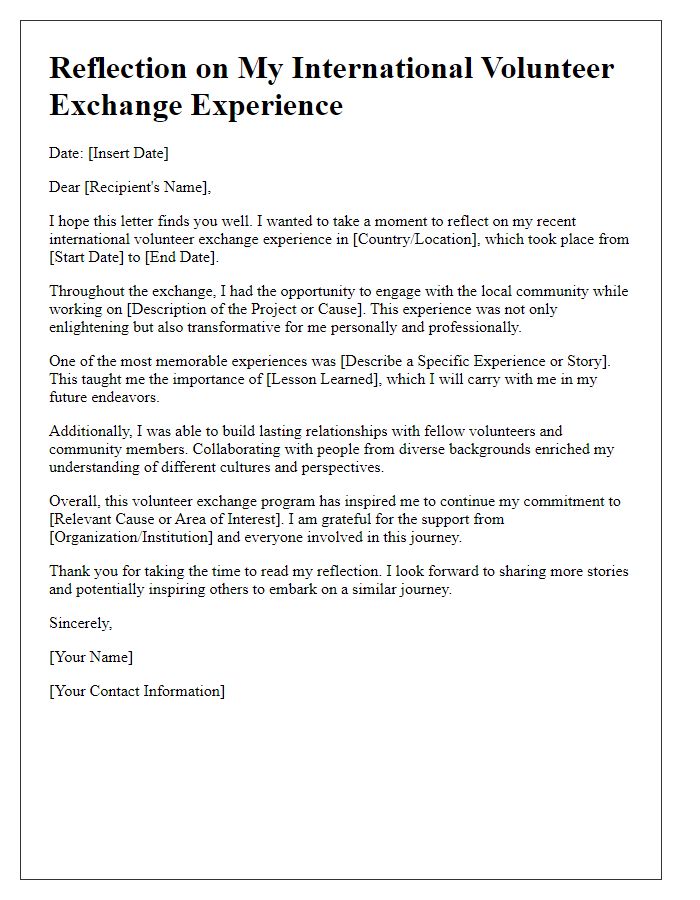
Letter template of international volunteer exchange partnership proposal
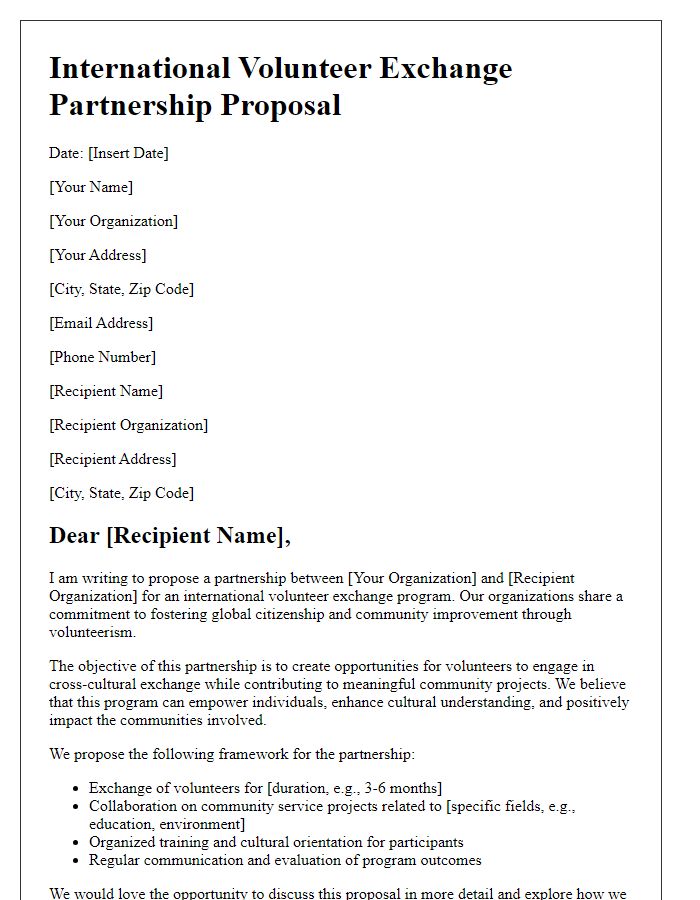

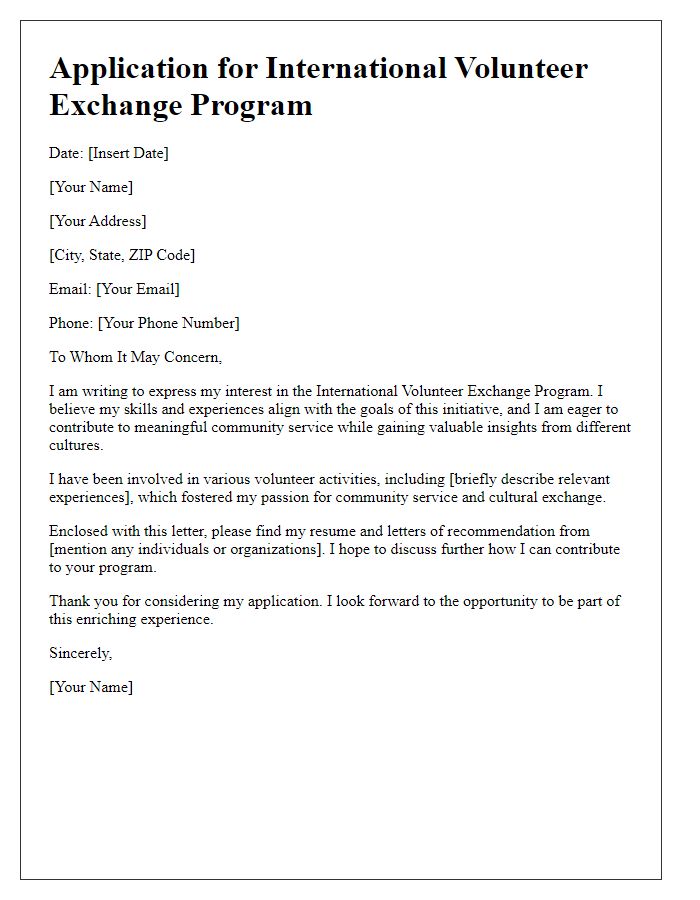
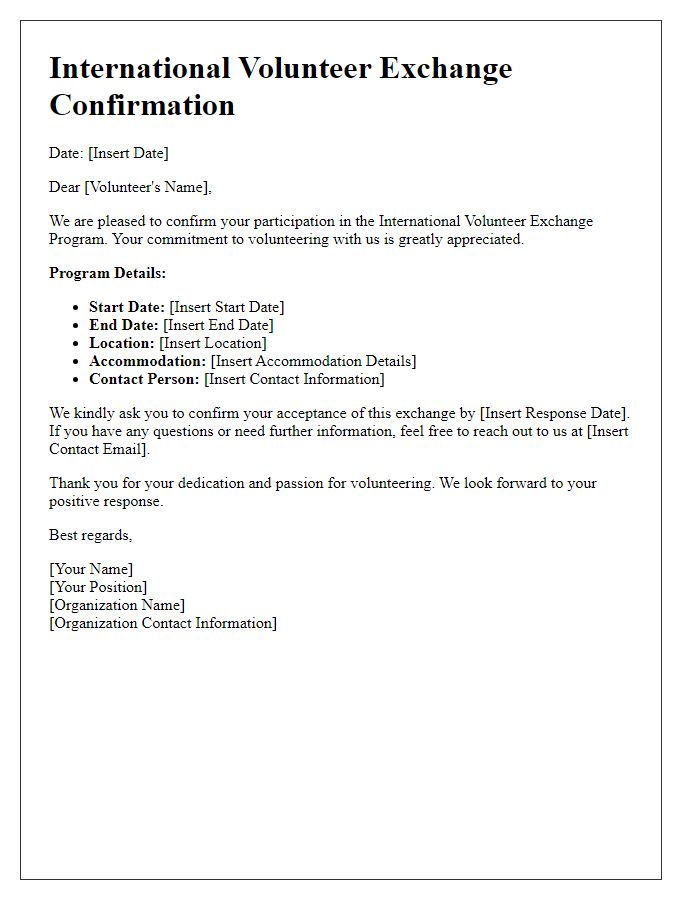
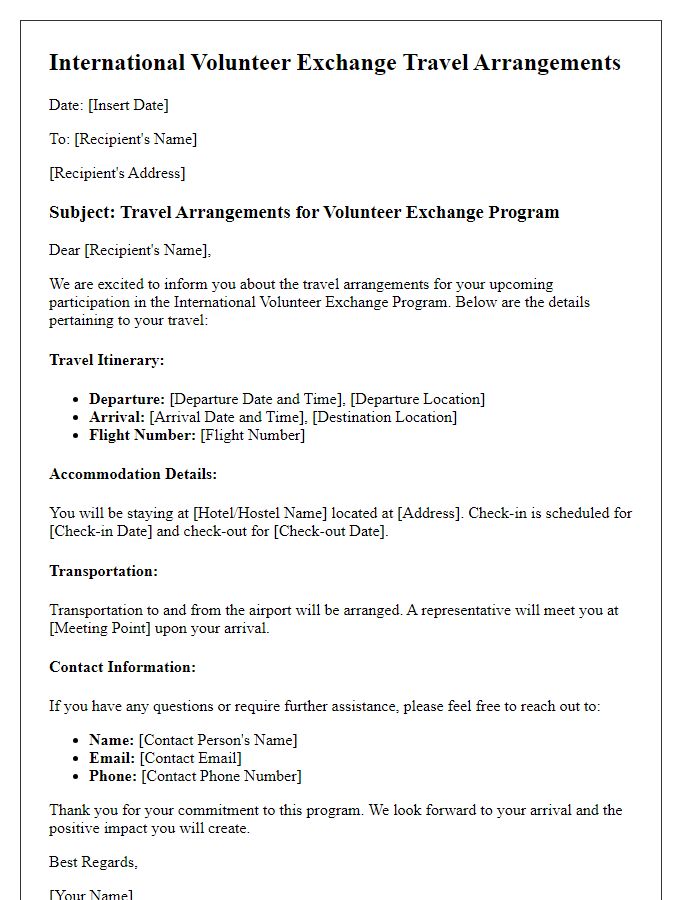
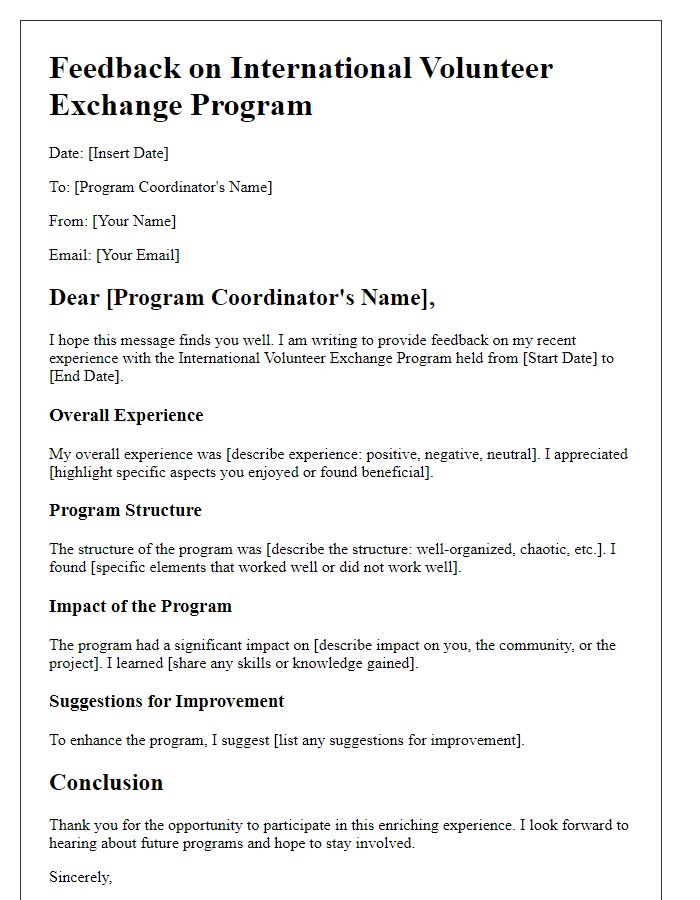
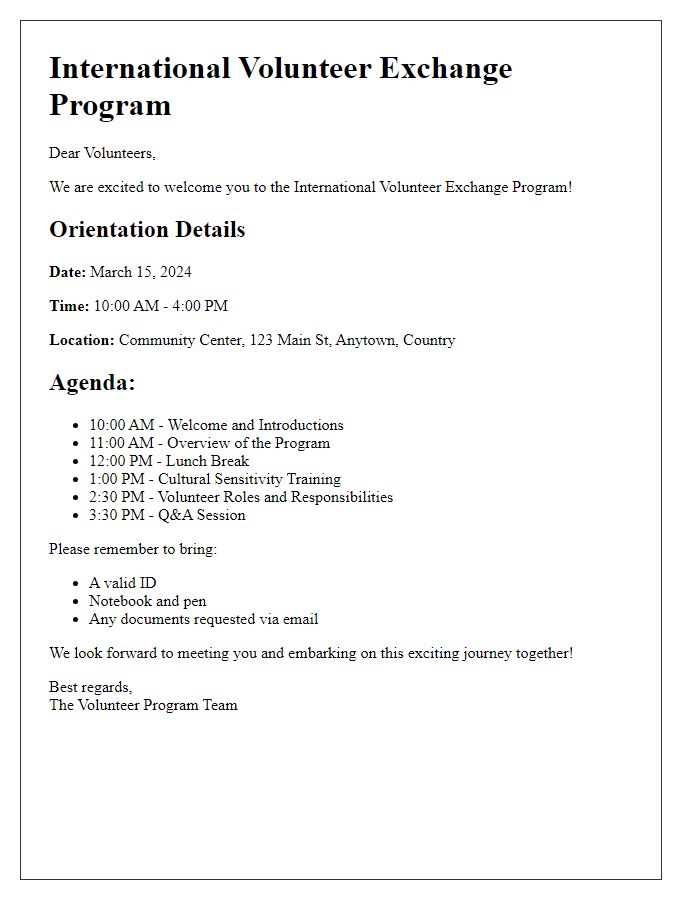
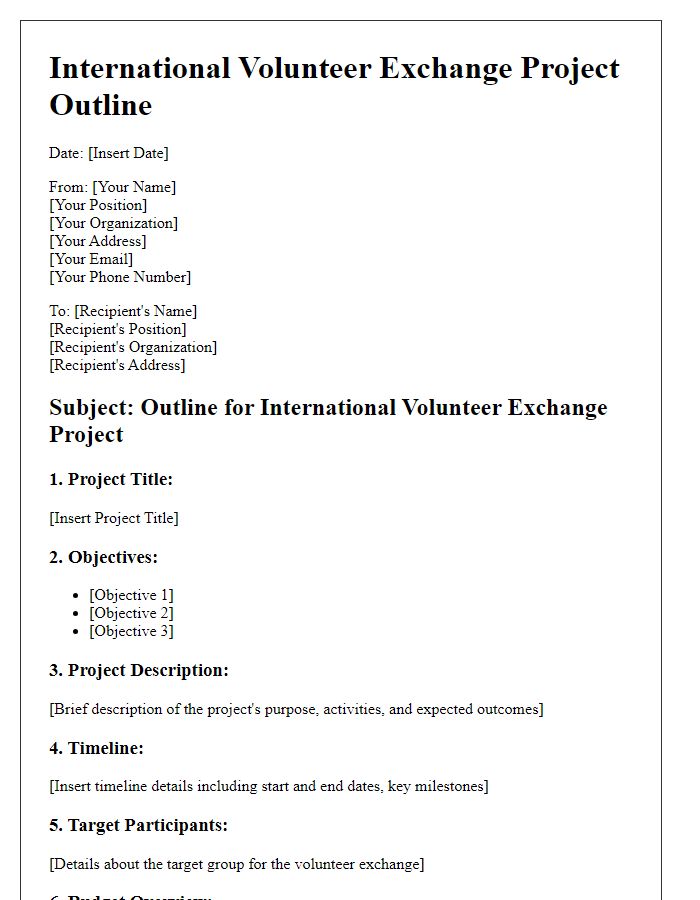
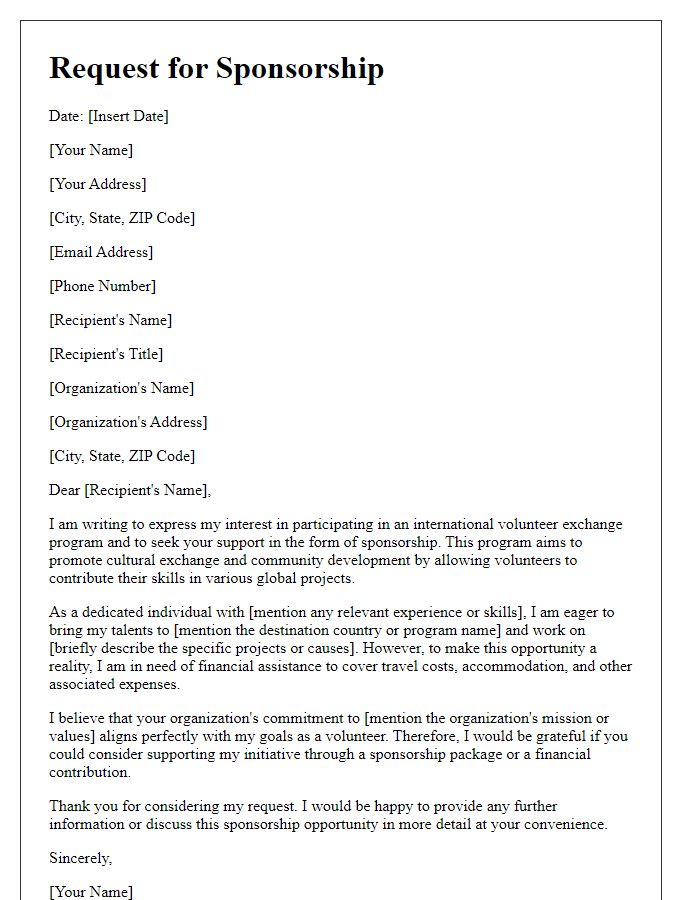
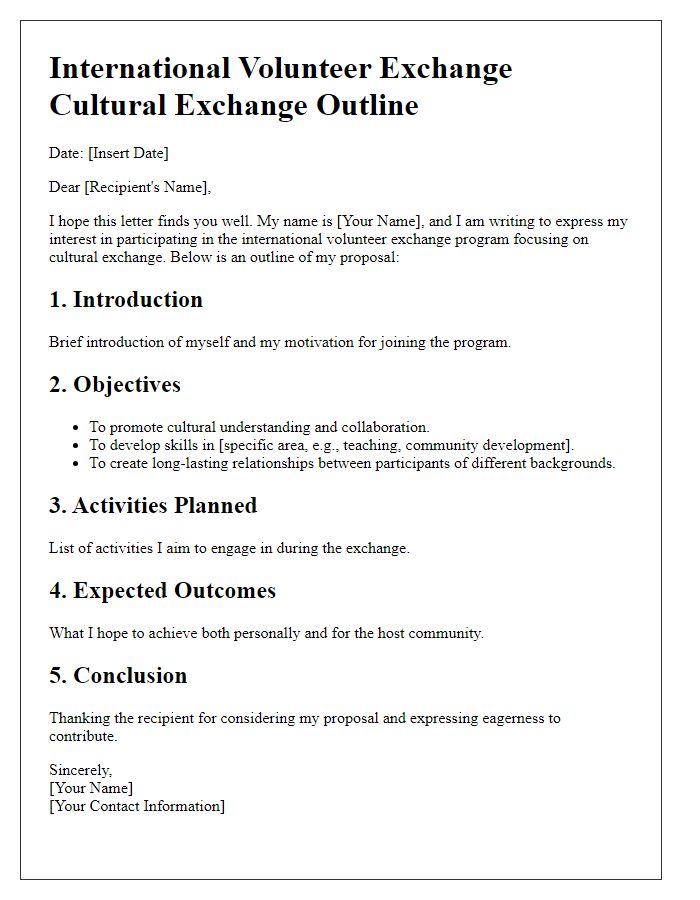

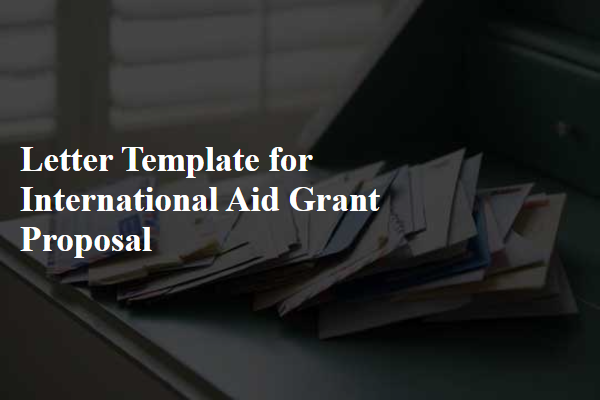
Comments